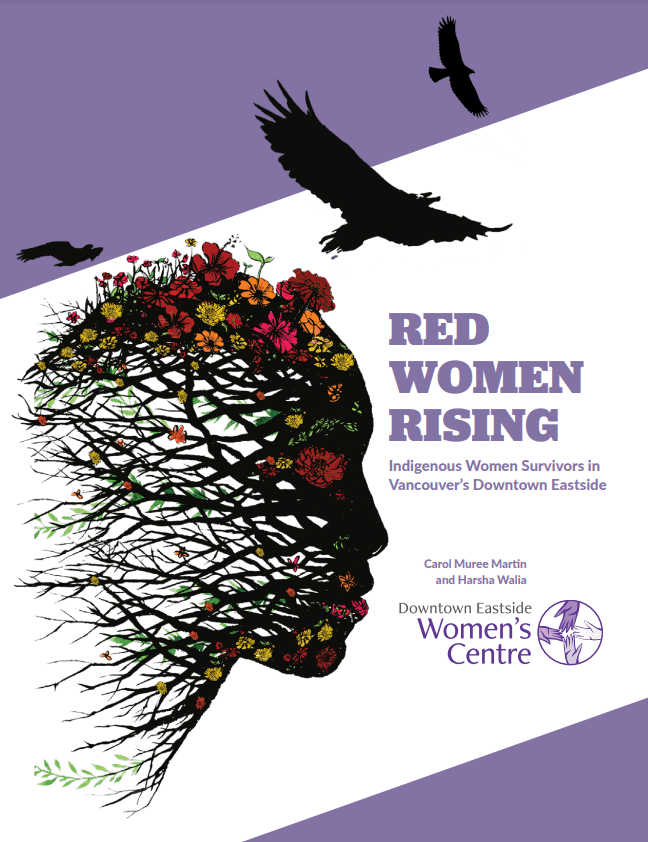33 search results
for
Housing and homelessness
Recommendation 12:
End the criminalization of homelessness by eliminating bylaw infractions and criminal charges for sleeping or tenting in public spaces, and end the displacement of tent cities.
-
Category and theme:
Groups affected:
Location of recommendation:
Recommendation 13:
Change government definitions of social housing and affordable housing to mean rates that are affordable to people on social assistance, and rents that are income-geared not market-geared.
-
Category and theme:
Groups affected:
Location of recommendation:
Legislative reform to reduce Indigenous women’s manufactured vulnerability
Recommendation 14: Amend the provincial Residential Tenancy Act to cover all housing and to strengthen tenants rights. Amend the provincial Human Rights Code and Residential Tenancy Act to make it illegal to discriminate on the basis of social condition including health status and drug use.-
Category and theme:
Audience:
Groups affected:
Location of recommendation:
Guaranteed public services
Recommendation 28: Provide a safe and affordable home for every Indigenous woman on and off reserve. This housing must be with long-term security of tenure, independent of matrimonial or common-law status, and self-contained units of at least 400 square feet with bathrooms and kitchens. Housing must also consider specific needs such as mobility access, space for children and extended families, and ceremonial practices. Highest priority for social housing should be given to Indigenous women fleeing violence and Indigenous mothers at risk of child apprehension.-
Category and theme:
Audience:
Groups affected:
Location of recommendation:
Recommendations to end Indigenous women’s displacement from land
On reserve
Recommendation 40: The federal government must guarantee:- Access to clean drinking water; food security based on a traditional diet; critical infrastructure including roads and sanitation systems; and essential health, education, child care, housing, transport, recreational, cultural, and emergency services on every reserve.
- Safe, affordable, and livable housing for every woman on her reserve that is independent of her matrimonial status.
- Affordable child care and licensed day care options on every reserve.
- Complete complement of maternal and infant/child health services on reserve to enable women to remain closer to home to give birth.
- Free public transportation between each town and city located along the entire length of Highway 16 and all other highways, with a number of safe homes and emergency phone booths along the length of all the highways.
- Increase funding on all reserves for programs and services that strengthen traditional and cultural knowledge grounded in Indigenous laws, values, and practices.
- Range of anti-violence services including preventive programs, crisis intervention, victim services, advocacy support, restorative justice circles, shelters, transitional housing, and second-stage housing on every reserve.
- Cultural sensitivity training for all first responders such as police, healthcare professionals, and social workers who assist survivors of violence on reserve.
-
Category and theme:
- Accessibility ,
- Accessible services and technology ,
- Culture and language ,
- Decolonization and Indigenous rights ,
- Discrimination and hate ,
- Emergency response ,
- Gender-based violence ,
- Health ,
- Health, wellness and services ,
- Housing and homelessness ,
- Poverty and economic inequality ,
- Pre-natal care ,
- Public services ,
- Sexism
Audience:
Groups affected:
Location of recommendation:
Recommendations for safe and affordable housing for Indigenous women in the DTES
Recommendation 89: The Definition of Indigenous homelessness in Canada should form the basis of all policies on Housing and homelessness with appropriate solutions to homelessness that integrates land, culture, belonging, and kinship networks.-
Category and theme:
Audience:
Groups affected:
Location of recommendation:
Recommendations for safe and affordable housing for Indigenous women in the DTES
Recommendation 90: Comprehensive federal, provincial, and municipal Indigenous Housing policy framework to specifically address Indigenous homelessness.-
Category and theme:
Audience:
Groups affected:
Location of recommendation:
Recommendations for safe and affordable housing for Indigenous women in the DTES
Recommendation 91: Change government definitions of social housing and affordable housing to mean rates that are affordable to people on social assistance, and rents that are income-geared not market-geared.-
Category and theme:
Groups affected:
Location of recommendation:
Recommendations for safe and affordable housing for Indigenous women in the DTES
Recommendation 92: Funding initiatives to end homelessness must be more inclusive of Indigenous women. Implement the existing recommendations of Homes 4 Women and Women’s Shelters Canada on making homeless initiatives and funding structures more gender-equal.-
Category and theme:
Groups affected:
Location of recommendation:
Recommendations for safe and affordable housing for Indigenous women in the DTES
Recommendation 93: Federal funding for homelessness needs to go beyond Housing First initiatives to better suit the diverse needs of Indigenous women. Housing First funding must also have less eligibility criteria and longer timelines.-
Category and theme:
Audience:
Groups affected:
Location of recommendation:
